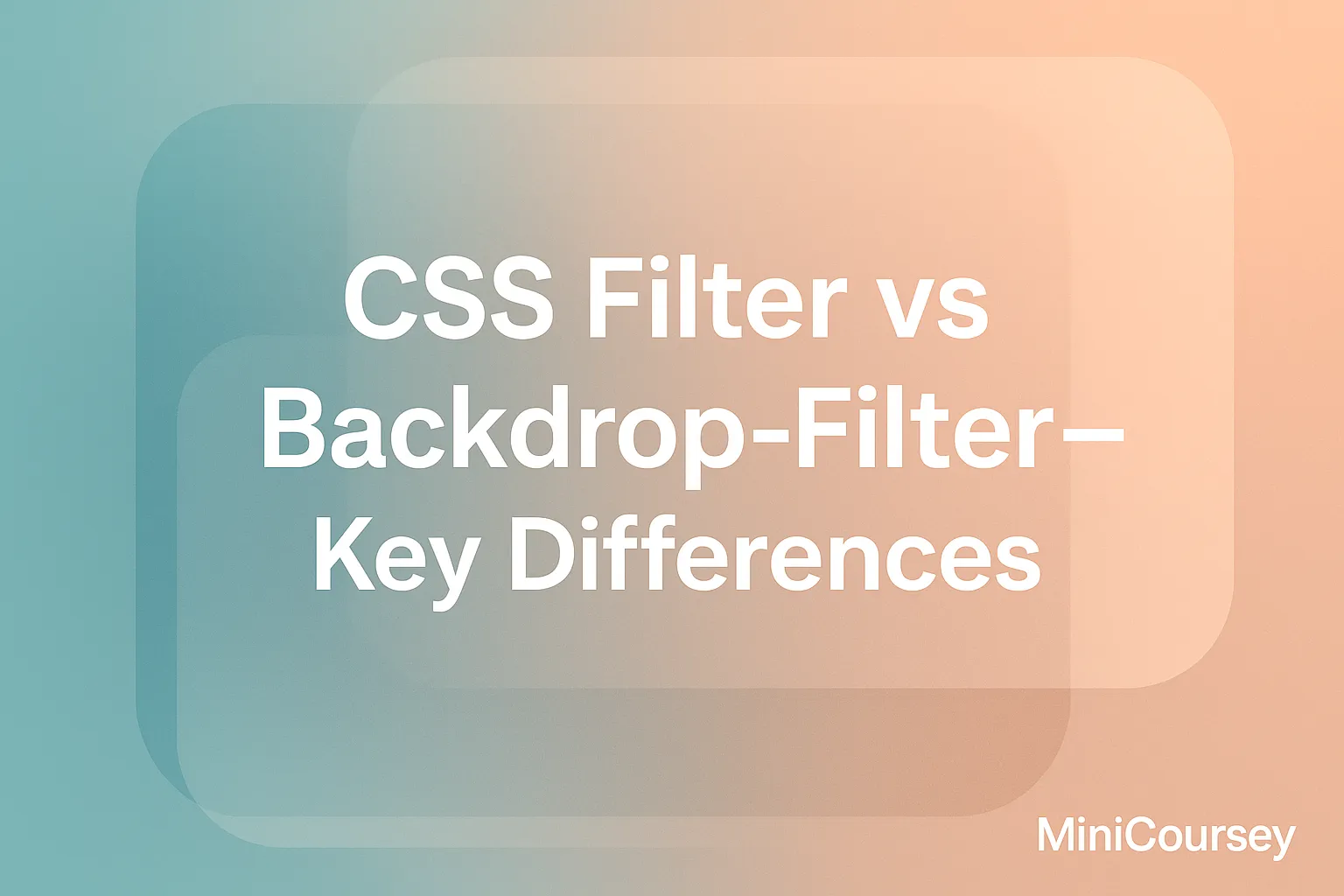Ever wondered when to use filter vs backdrop-filter in your CSS? Both add visual effects like blur, brightness, or contrast, but they work in very different ways! Knowing when to use each makes your layouts look polished and perform well. In this MiniCoursey quick guide, you’ll learn the core differences between filter and backdrop-filter and see practical examples of when each one shines.
What Does Filter Do?
The filter property applies graphical effects to the element itself. It affects everything inside — text, images, borders — all get the effect.
.card {
filter: blur(5px);
}
In this example, the entire .card content becomes blurry — not just the background behind it.
What Does Backdrop-Filter Do?
The backdrop-filter property applies graphical effects to the area *behind* an element. It only affects what’s seen through the element’s background — not the element’s own content.
.overlay {
background: rgba(255, 255, 255, 0.4);
backdrop-filter: blur(10px);
}
Here, the overlay itself stays clear, but the content behind it becomes blurry through the transparent background — perfect for glassmorphism or frosted glass effects.
When to Use Each
- Use
filterfor direct effects on images, text, or entire elements. - Use
backdrop-filterfor overlays, modals, or cards with frosted backgrounds.
💡 Pro Tip: You can combine both! For example, blur an image with
filterand add an overlay withbackdrop-filterfor layered depth.
⚠️ Common Mistake: Remember,
backdrop-filterneeds a semi-transparent background to reveal the effect!
FAQ
Q: Do both impact performance?
A: Slightly. Blurring large areas can use more GPU, so test and optimize for best results.
Q: Do I need vendor prefixes?
A: For backdrop-filter, yes! Add -webkit-backdrop-filter for better Safari support.
Related Link
👉 Check out previous: CSS Mix-Blend-Mode — Creative Layer Effects
Where to Learn More
Check MDN’s docs for side-by-side filter and backdrop-filter demos. Play with overlays and hero images for creative effects.
Conclusion
Congrats — you now know the difference between filter and backdrop-filter! Use them wisely to create sharp, modern, layered designs.
✨ Bookmark MiniCoursey for more quick & free mini courses!

